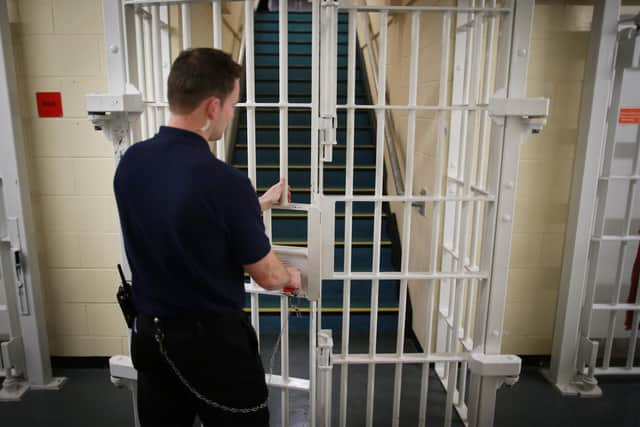Why the prison population is getting older and how that poses challenges - Dr Alan Billings
In fact, quite a lot of change is happening, but what struck me most about the latest statistics I have seen is the age of those now in our prisons.
Prisoners are getting older, including the much smaller numbers of female prisoners. The over 50s are, in fact, the fastest growing group in the prison population.
Advertisement
Hide AdAdvertisement
Hide AdThere are two main reasons for this. First, prison sentences are getting longer. This is something the public generally wants to see.


I am often told at some of the rowdier public meetings I go to that certain people should be locked up and never be readmitted to society again – ‘throw away the key’ is how it is generally put. One consequence of giving longer sentences is that offenders reach older age while in custody. A second reason is the nature of the offences. An increasing number of older people are being sentenced for sexual offences, including offences that go back many years.
What the public may not stop to think about is that all of this has consequences. They can be summarised as: health, purposeful activity and support.
People in prison age significantly faster than the population as a whole – by about ten years – so it is not surprising that some of the older offenders have complex health needs.
Advertisement
Hide AdAdvertisement
Hide AdThis can be a challenge for prisons. It is a challenge in the prison – issues such as the menopause, poor mobility, dietary needs. It is a challenge for prisons and probation as the prisoners come to the end of their sentence and need to be settled back into the community.
Purposeful activities may also need to be different for the older prisoner, activities that the prison has not traditionally been geared up to meet. And general support can create real headaches.
Older prisoners may be a long way from home and those family members who seek to visit and keep in touch. They may not be digitally literate, yet the digital world they will have to return to is moving at an ever faster rate and they will need to be able to access many of their needs after prison online – including benefits such as pensions.
Having to deal with this falls largely on prison officers who are already under great pressure.
Advertisement
Hide AdAdvertisement
Hide AdWhen people tell me to press for longer sentences, I understand the sentiment and the emotion, but I also think about the consequences, the consequences for prisoners but also for prison staff.
People in rural communities have been saying for some time that they are not convinced that South Yorkshire Police (SYP) has been hearing what they are facing by way of crime and anti-social behaviour as much as they might have been. So an initiative is under way to give fresh energy to SYP’s response to rural crime, starting with a series of meetings in each district across the county to introduce the police team to local people and to hear what people in more rural places have to say to the police – the first steps in re-enforcing trust and confidence.
A shortened version of the Police and Crime Commissioner for South Yorkshire’s latest blog post.